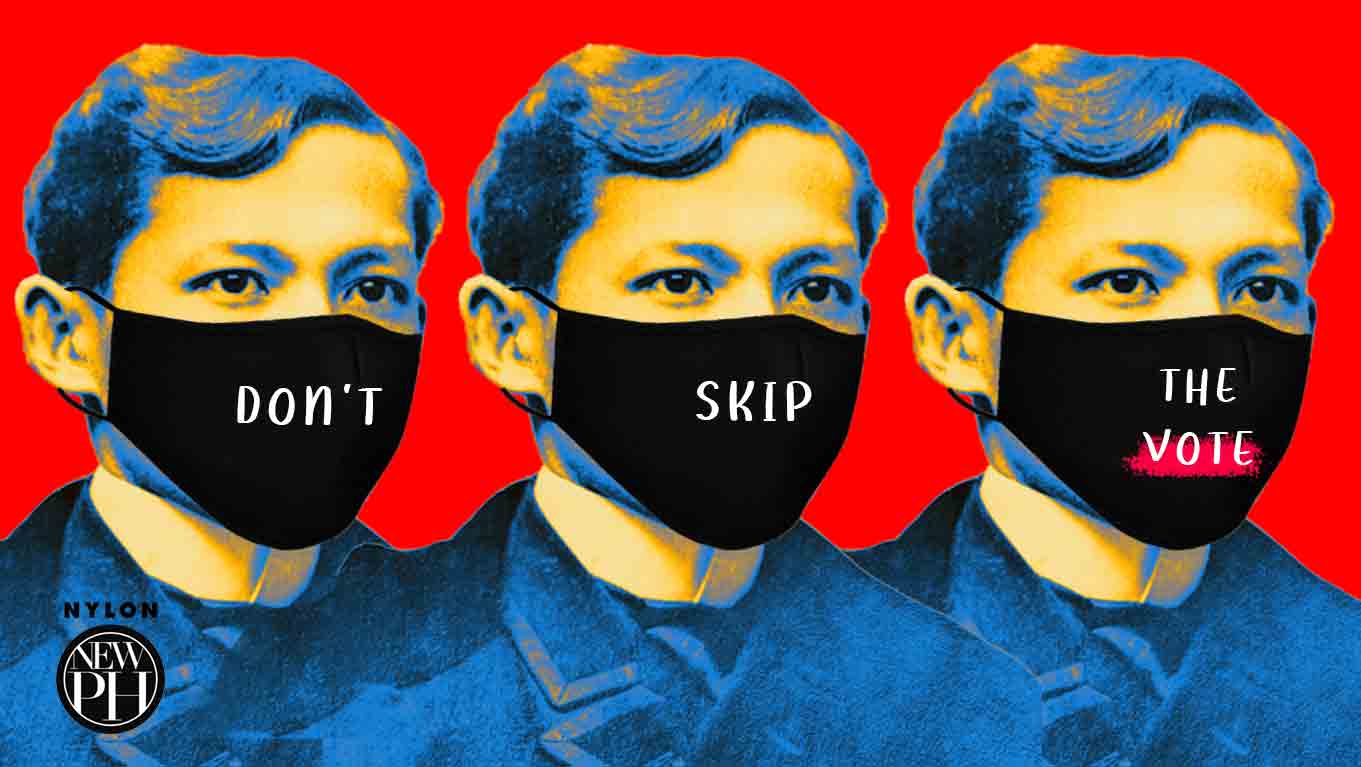Sure, you can ignore on ads, songs, or even that intro on Netflix, but if there’s one thing you shouldn’t skip, it is to register and vote in the upcoming elections, because now more than ever, your choice matters.
Don’t like seeing that ad in between your spiral into the blackhole of YouTube? Skip. Raring to get into the next episode instead of sitting through the compelling intro of the binge-worthy show you’re currently obsessed with? Skip. Not quite into the song shuffled to play on Spotify? Skip. You see, in a time of great access, unparalleled technology, and penchant for personalization, we have cultivated a culture of impatience with the option to skip on just about everything that we deem unworthy of our attention and well, personally irrelevant to our temperamental attention. Yes, it’s a choice that you are at liberty to make, but notice how it has encouraged the disgruntled and disagreeing to ignore the sequence thinking that it wouldn’t so much as make a dent on the what happens next.
This cannot be any more misguided, considering that your choices online dictate the algorithm of your digital echo chamber. What ads, episodes, and songs you skip will not necessarily make them go away, but rather, will just make the agencies and thinking heads responsible for marketing and creating to recalibrate their content. The goal is simple: To have a lot of eyes and ears on what they have to offer. In advent of streaming in music for example, with the attention span decreasing from an average of 12 seconds in 2000 to just 8 seconds 15 years later as revealed in a study led by Microsoft, singers and songwriters have been truncating the standard 3-minute songs into just around 2 minutes. Here, they have to make sure to hook the listeners earlier, hopefully before the 30-second mark to make a paycheck.
Conditioned by convenience to just think of what we want, heightened of course by the generational thrust of prioritizing the self, the effects thereof extends its reach far more than just pop culture and into politics, specifically the all important, future-dependent civic duty to vote in local and national elections.
Related: VOTER REGISTRATION IN THE PHILIPPINES BY THE NUMBERS SO FAR
DON’T SKIP THE VOTE
In a cancer-stricken system of democracy that is constantly plagued by distrust and skepticism in the Philippines, it isn’t surprising that a sizable chunk of the population would rather skip their responsibility to register and vote for the elections. Despite being more attuned to the goings on of the political scene in the country, as well of a keen awareness and robust passion for accountability, there still is a pervasive cynicism and perception of powerlessness that cripples the emergence of change in governance.
Dissecting the disillusionment of the Filipino population to traditional politics, a study of the 2004 elections prove to be enlightening as to how we have yet to reach a point of maturation in what is pivotal to nation building and progress. “The study indicates a deepening of voter consciousness of their sovereign power in choosing political leaders through the exercise of their right of suffrage and of the serious consequences of their vote. At the same time, it exposes the growing cynicism and the highly personalistic framework of the Filipino voter,” it states as published on the website of Ombudsman.
“The changes in outlook of the voters regarding elections seems to indicate hopelessness. The voters becoming cynical about Philippine politics thus, the most important factor for them in choosing the candidates are those from whom they will benefit most…This implies that voters have a limited appreciation of governance and policies that affect them, such that good governance is not a major factor to consider in their decision-making.”
This couldn’t have been made more clear with the results of the 2016 national elections where in the Philippines alone (excluding the overseas and local absentee voting), despite 54.4 million registered to vote in the polls, the actual electoral turnout was recorded a 44,549,848. While the possibility of overturning the overwhelming results will forever be up for debate, especially with the fragmented preferences of the population, it is important to note that the number of those who decided to skip the vote was and still is a cause for alarm.
PSYCHOLOGY OF ELECTIONS
“People who are less trusting of their fellow citizens and who are less trusting of government officials to do the right thing are less likely to vote,” explains Christopher Federico, a professor of political science at the University of Minnesota. “If you believe that your fellow compatriots and government officials are all out for themselves and cannot be trusted to behave in a moral fashion, then voting is likely to be seen as useless.” Shedding more light into the phenomenon of those who skip everything from registering and voting, as well as of the propensity of the vote, he qualifies it on the same plane as what we care more or less about: music, abstract art, and so on.
“Some people care about politics this way, and tend to care what’s going on in the political world even if an election isn’t coming up. Others do not. All other things being equal, people who are less interested in politics—or who do not see their political beliefs as central to their identity—are less likely to vote,” he details. “[It] matters whether a person is interested in politics or sees politics as something central to their sense of self.” Adding to this, Leonie Huddy, a professor of political science and an expert on the psychology of elections says that the machinery of misinformation plays a huge role in getting people to even register, let alone vote. “Voters who follow the news but think the electoral system is rigged or that voting doesn’t matter and fail to show up for that reason,” he asserts.
As personal and preferential as the principles are, it cannot be stated enough that at the end of the day: it still is a numbers game. Meaning, if we want things to actually change, we cannot be swayed by hopelessness and the failure of the system. All the more we should be riled up to go out and do something, especially when in the most ideal sense in mathematics, we potentially have the numbers to reclaim democracy in the upcoming 2022 elections.
CHANGE IS NOT A GAME OF CHANCE
The facts do not lie. Out of 73 million eligible voters in Halalan 2022, 40 million of which are aged between 18-39 years old, making the Millennials and Gen Z the most formidable voting bloc. For further context, in 2019, this bracket comprised more than half (or 53.2%) of the registered voters. Needless to say, the swing of the electorate is definitely skewed towards the critical population who are yearning for plans of action, not empty promises. It’s a lot of responsibility heaved on our shoulders, but this is for the sake of the country and the future we actually want to live in, so yes, it matters a lot.
“Sa ngayon nasa 59 million na tayo, we’re about 2M to go and we have 4 months left in the registration period at patuloy naman ‘yung pagsasa-satellite registration natin kaya umaasa tayo na maabot natin mga goals natin,” says COMELEC spokesperson Director James Jimenez in a published update on ABS-CBN News. “Dumadami ang dating ng tao kasi nararamdaman nila patapos na ‘yung period. As usual dito sa Pilipinas ‘pag medyo may sense of urgency na dumadami na rin ang dating ng mga registrants natin.”
The #2022NLE is less than a year away! Got questions? Talk to us. Here are the Voter Care Center hotlines: pic.twitter.com/CFyZllGoxB
— COMELEC (@COMELEC) May 24, 2021
With the deadline to register to vote in the upcoming elections looming on September 30, the COMELEC has made it fairly easy to do so, setting up schedules and satellite sites to accommodate as many as possible, following safety precautions and mandated measures, of course. So, with the voter efforts and education online and on ground, the resolve should be: don’t turn the other away in apathy and ignore your impact, especially when a lot is at stake here, for you, for us, and for every Filipino deserving of governance and public servants that are not only better, but truly committed to the constitutionally-sworn promise of being in service to the country.
Change shouldn’t be left to chance anymore, because as we learned the hard way, it is a choice that determines how the story sees itself through. And since we are looking for a future with a stronger democracy, accountable governance, and most importantly, a renewed Philippines, every move we make matters. So, don’t skip on the vote, because otherwise, the more we do so, the worse it can only get. And we wouldn’t that anymore, now would we?
CONTINUE READING: REGISTER TO VOTE FOR THE ELECTIONS: A FIRSTHAND EXPERIENCE FROM A FIRST-TIMER





